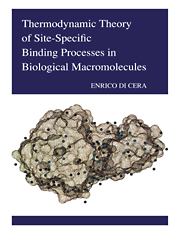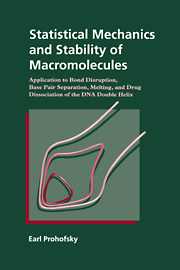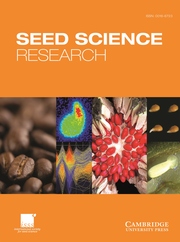Thermodynamic Theory of Site-Specific Binding Processes in Biological Macromolecules
This book provides the first systematic treatment of the thermodynamic theory of site-specific effects in biological macromolecules. It describes the phenomenological and conceptual bases required to allow a mechanistic understanding of these effects from analysis of experimental data. The thermodynamic theory also results in novel experimental strategies that enable the derivation of information on local, site-specific properties of a macromolecular system from analysis of perturbed global properties. The treatment focuses on binding phenomena, but is amenable to extension both conceptually and formally to the analysis of other cooperative processes, such as folding and helix–coil transitions. This book will interest any scientist involved in structure–function studies of biological macromolecules, or as a text for graduate students in biochemistry and biophysics.
- The first book on this important new subject in biochemistry and biophysics.
- Well-known US author.
Product details
March 2005Paperback
9780521619752
316 pages
246 × 189 × 17 mm
0.57kg
93 b/w illus. 23 tables
Available
Table of Contents
- Preface
- 1. Statistical thermodynamic foundations
- 2. Global binding processes
- 3. Local binding processes
- 4. Specific cases and applications
- 5. Site-specific effects in Ising networks
- References
- Index.






